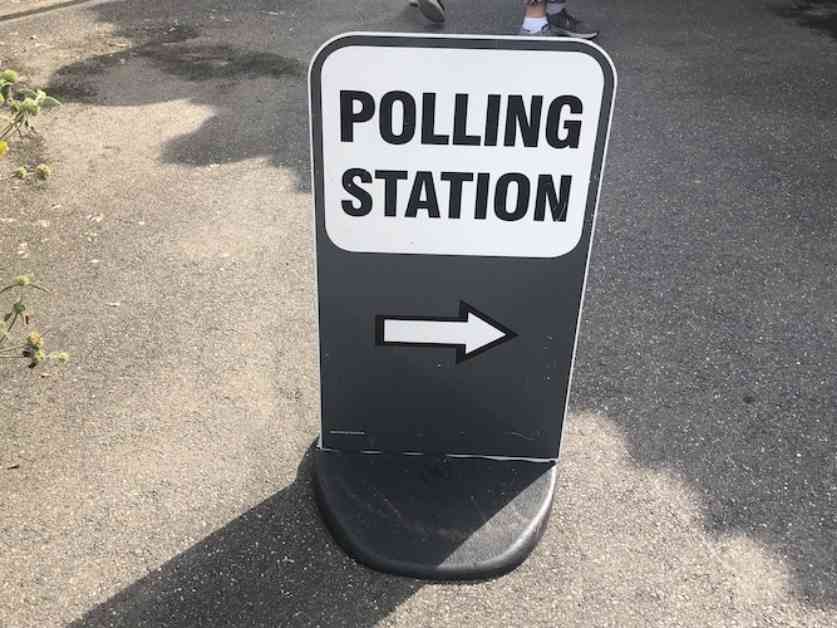London Election Results: How Voter ID Laws Impacted the 2021 London Mayoral Election
The London mayoral election in 2021 saw a significant impact from voter ID laws, with nearly 5,000 Londoners being prevented from voting due to lack of proper identification. While the majority of these individuals were able to cast their votes later in the day, a concerning 30 percent did not return, raising questions about the accessibility of the electoral process.
The figures released by 25 of the capital’s 33 local authorities paint a stark picture of the challenges faced by voters during the election. A total of 5,065 Londoners arrived at polling stations without approved photographic identification on May 2nd, with 1,436 of them failing to return later in the day. This represents a significant portion of the electorate who were effectively disenfranchised due to the voter ID requirements.
The data breakdown, as provided by Len Duvall, leader of the London Assembly Labour group, highlights some of the areas most heavily impacted by the voter ID laws. Boroughs such as Enfield, Lewisham, and Lambeth saw high numbers of electors turned away, with only a fraction of them returning with the necessary ID. The overall success rate of returning to vote across the 25 local authorities stood at 28.15 percent, indicating a significant barrier to voting for a substantial number of Londoners.
Despite the challenges faced by some voters, the election received a total of nearly 2.5 million votes for mayoral candidates, with a majority of them being cast in person at polling stations. However, the data also reveals that over 700,000 votes were cast through postal ballots, suggesting that some voters may have opted for this method to avoid the voter ID requirements.
The introduction of voter ID laws by the previous Conservative government has been a topic of debate, with concerns raised about its impact on voter turnout. An Electoral Commission study of local elections outside London found that four percent of non-voters cited the voter ID requirement as a reason for not participating, indicating a potential deterrent effect on voter engagement.
Len Duvall expressed his concerns about the disenfranchisement of Londoners due to the voter ID rules, attributing them to the previous government’s efforts to suppress certain demographics from voting. He urged Londoners to ensure they have the necessary photo ID or obtain a Voter Authority Certificate ahead of future elections to avoid being turned away at the polls.
Looking ahead to the 2026 local elections in the capital, it is crucial for policymakers to consider the implications of voter ID laws on voter participation and address any barriers that may prevent eligible voters from exercising their democratic rights. By promoting greater accessibility and inclusivity in the electoral process, London can ensure that all citizens have the opportunity to have their voices heard.
The Impact of Voter ID Laws on Voter Turnout
The 2021 London mayoral election highlighted the significant impact of voter ID laws on voter turnout and accessibility. While voter ID requirements are intended to prevent fraud and maintain the integrity of the electoral process, they can also pose challenges for certain groups of voters who may not have easy access to valid identification.
The data released by local authorities in London provides valuable insights into how voter ID laws affected the election. With over 5,000 Londoners being turned away from polling stations due to lack of proper identification, it is clear that these laws had a tangible impact on the ability of some citizens to participate in the democratic process.
The high number of electors who did not return later in the day to cast their votes raises concerns about the disenfranchisement of certain demographics. In particular, vulnerable populations such as low-income individuals, elderly citizens, and ethnic minorities may face barriers in obtaining the necessary ID, leading to exclusion from the electoral process.
Addressing Barriers to Voting
To ensure that all eligible voters have the opportunity to participate in elections, it is essential to address the barriers posed by voter ID laws. Policymakers must consider alternative methods of verifying voter identity that are more accessible and inclusive, such as Voter Authority Certificates or other forms of identification that do not pose undue burdens on voters.
Additionally, efforts should be made to educate the public about the voter ID requirements well in advance of election day, and to provide assistance to those who may have difficulty obtaining the necessary documentation. By promoting greater awareness and accessibility, London can work towards a more equitable and inclusive electoral process that encourages broad participation.
The Future of Voter ID Laws in London
As London prepares for future elections, it is crucial to evaluate the impact of voter ID laws and consider reforms that promote greater inclusivity and accessibility. While the goals of preventing fraud and maintaining electoral integrity are important, it is equally essential to ensure that all citizens have the opportunity to exercise their right to vote without unnecessary barriers.
By engaging with stakeholders, conducting thorough research, and implementing evidence-based policies, London can work towards a more transparent, fair, and participatory electoral system. The 2021 mayoral election serves as a reminder of the importance of addressing voter ID laws in a way that upholds democratic principles and safeguards the rights of all citizens to participate in the electoral process.





















